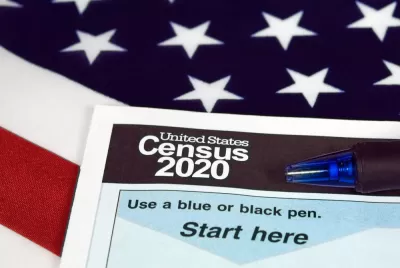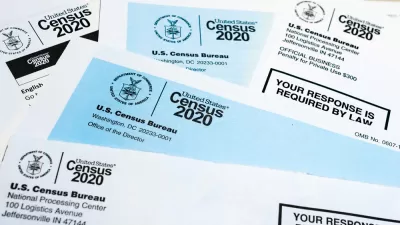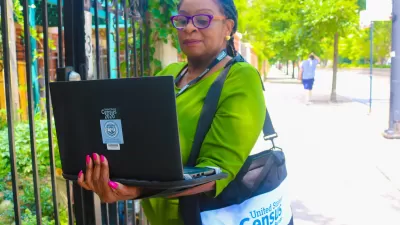The U.S. Census Bureau offers a variety of data and tools that can be used by policy-makers and the public to better understand underserved communities and advance equity.

Recognizing the need for data to improve planning and service delivery, the U.S. Census Bureau produces data that depict an accurate portrait of America, including its underserved communities. Some of the data equity services highlighted in this article include:
-
Demographic Data: The Census Bureau offers data by key demographic variables such as race, ethnicity, sex, disability, income, and veteran status to help measure equity. These data are often by geography, which provides meaning and context to the statistical data, and can identify rural and underserved communities. Users are encouraged to explore demographic data with data tools such as data.census.gov.
-
Data Tools: The Census Bureau has developed a variety of data tools that help the public and policy-makers understand the issues surrounding inequities and enable them to develop and propose effective, data-based solutions.
-
Public Assistance Program Metrics: Census Bureau data can provide metrics to show public assistance programs’ progress and outcomes.
-
Diversity Measurement: The Census Bureau uses several approaches to measure the racial and ethnic diversity of the U.S. population, including the Diversity Index, prevalence rankings, the diffusion score, and a series of prevalence maps.
-
Data Education: A major part of the Census Bureau's mission is to educate the public, policy makers, and stakeholders on what data they have available and how to use them. To empower data users with understandable, accurate, and timely information and the knowledge to use it, the Census Bureau invites users to:
- Explore the online Census Academy for upcoming webinars and on-demand data training.
- Browse the Data Equity Library with its online collection of equity-related data visualizations, infographics, photos, audio, video, working papers and more.
For more information, please read the source article.
FULL STORY: Advancing Equity with Data

Montreal Mall to Become 6,000 Housing Units
Place Versailles will be transformed into a mixed-use complex over the next 25 years.

Planetizen Federal Action Tracker
A weekly monitor of how Trump’s orders and actions are impacting planners and planning in America.

DARTSpace Platform Streamlines Dallas TOD Application Process
The Dallas transit agency hopes a shorter permitting timeline will boost transit-oriented development around rail stations.

Dead End: Nine Highways Ready for Retirement
The Freeways Without Futures report describes the nation’s most promising highway removal proposals.

Congressman Proposes Bill to Rename DC Metro “Trump Train”
The Make Autorail Great Again Act would withhold federal funding to the system until the Washington Metropolitan Area Transit Authority (WMATA), rebrands as the Washington Metropolitan Authority for Greater Access (WMAGA).

Trump's “Able Bodied” Public Housing Limits Could Displace Over 300,000 New Yorkers
As part of 43% cut to federal rental assistance, Trump is proposing a two-year limit on public housing tenure for “able bodied adults.”
Urban Design for Planners 1: Software Tools
This six-course series explores essential urban design concepts using open source software and equips planners with the tools they need to participate fully in the urban design process.
Planning for Universal Design
Learn the tools for implementing Universal Design in planning regulations.
City of Mt Shasta
City of Camden Redevelopment Agency
City of Astoria
Transportation Research & Education Center (TREC) at Portland State University
City of Camden Redevelopment Agency
Municipality of Princeton (NJ)
Regional Transportation Commission of Southern Nevada





























